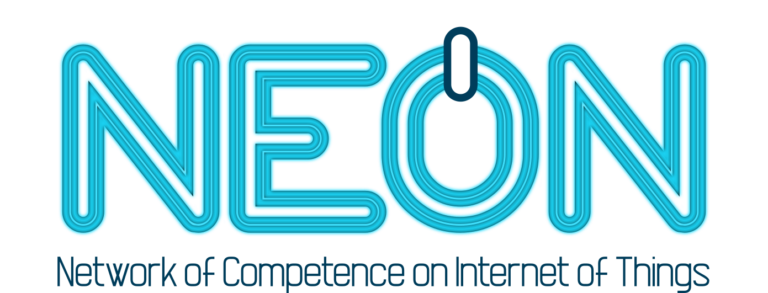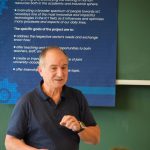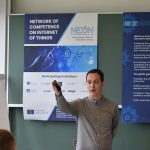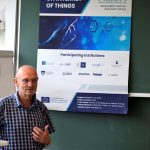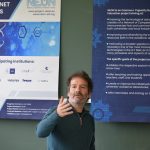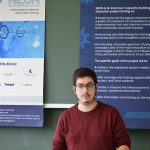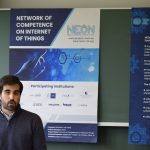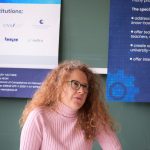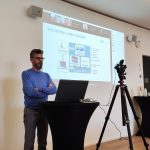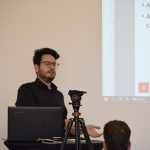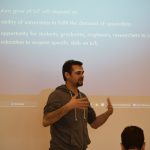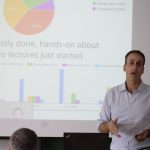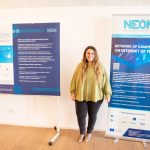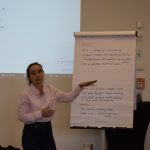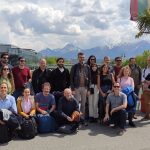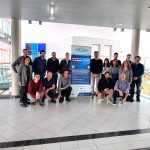Today, IoT has emerged as a crucial technology, making it one of the most significant developments of this era. Although the industrial activities in this field have increased significantly and rapidly over the recent years, the development in Information and Communication and specifically the Internet of Things (IoT) is expanding at a relatively slow pace, especially in Argentina and Uruguay, the target countries of project NEON. The growth of the IoT industry is not encompassed by a parallel transformation of the ICT study programs in these countries. NEON. As a 3-year Erasmus+ Capacity Building in Higher Education (CBHE) project, NEON intends to overcome this predicament by aligning academia with industry thanks to the creation of a Network of Competence on IoT. The project aims to improve and diversify the training of human resources both in the academic field and in the industrial sphere and eventually motivate a broader spectrum of people towards IoT, thus, influencing and optimizing various aspects and processes of our everyday lives.
The project NEON started in January 2021 and its initial year was dedicated to developing the guidelines and formal structure for the Network of Competence (NoC) in IoT. These policies guide the project activities and formulate various aspects of the NEON consortium. In addition, various virtual events and workshops were organized to train the students and increase the awareness of academia and industry about the latest developments and opportunities in the field of IoT.
2022 was yet another crucial year for NEON, as the project had its first presential meetings, events, workshop, and training sessions this year. The year was particularly dedicated to WP2, WP3, and WP4, wherein the main focus was to develop a Network of Competence on IoT through university and industry cooperation agreements and legal cooperation framework, creating teaching methodologies, materials and modernizing the study programs by adopting novel learning methods, developing classes to modernize teaching methods, and developing laboratories through the upgrading of HEI lab infrastructure by creating modern industry-academia labs. Substantial outputs of the major tasks in these WPs included:
- WP2. Development of a cooperation agreement between founding members (NEON partners) to establish a network of competence on IoT which shall survive beyond the project duration and formulate the Governance (policies and procedures) to regulate the network.
- WP3: Creation and modernization of teaching material and development of web repository for class and lab session materials wherein 20 IoT courses were introduced by the Latin American HEIs in their study programs (13 courses were modified and 7 new courses created)
- WP4: Creation of 5 modern industry-academia labs. The establishment of formal links and joint lab operation agreements between universities and companies was achieved. 64% of the overall equipment for the labs was acquired, installed, and in use.
The presential event details are available at https://www.project-neon.eu/ while a detailed description of the results of the above-mentioned WPs can be found in the respective deliverable at: https://www.project-neon.eu/documents/ .
In addition to these WPs, other crucial project activities were carried out, and the significant results obtained during 2022 are as follows:
- The web platform (http://neon-iot.org/) of the Network of Competence (NOC) was launched. Technical content (such as lesson plans, course syllabi, internship opportunities, industry catalogs, etc.) is uploaded along with the web repository for classes and lab sessions.
- The first presential event i.e the project meeting and staff training was organized by Universität Klagenfurt (UNI-KLU) in Klagenfurt, Austria.
- The first QCMB meeting, the second presential project meeting, and staff training were organized by Universidad Carlos III de Madrid (UC3M) in Madrid, Spain.
- The second NEON Open event involving the community on academia-industry cooperation in teaching was organized by Universidad Católica del Uruguay (UCU).
- The bilateral cooperation among partner HEIs was established to facilitate student mobility.
- The technical progress report (mid-term) and financial report was submitted to EACEA.
- Professional teacher training was carried out for teaching staff members of partner institutions at UNI-KLU (Klagenfurt, Austria) and UC3M (Madrid, Spain).
- Continuous organizational and administrative operations behind the scenes were carried out to ensure seamless project management.
All recordings of the webinars, open events, interviews, and so on can be found on the official NEON Youtube channel. Follow or subscribe to the NEON media channels:
